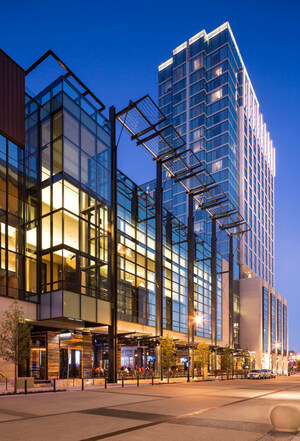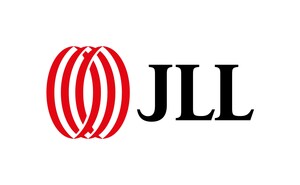With most workers back in the office globally, reconciling individual and collective needs will be a top priority for creating a positive hybrid employee experience
CHICAGO, Nov. 15, 2023 /PRNewswire/ -- As more companies announce new office attendance mandates, and most workers are back in the office globally, leaders now must now consider how to meet new expectations around work and where it's done.
JLL's report, Is hybrid really working? Creating a dynamic workplace for a productive workforce, explores employers' and employees' new expectations in today's hybrid environment, uncovering best practices to attract employees to the office and maintain the flexibility offered by remote work. The latest report from JLL draws on the global feedback of over 200 Corporate Real Estate decision makers from July – August 2023 as well as a year-long survey of more than 20,000 office workers.
A new normal for office attendance
With the increased emphasis among employers on productivity and operational efficiency, companies continue to adjust their hybrid policies in favor of greater office attendance. Today, employees globally are spending just over three days in the office on average, with peak attendance on Tuesdays, Wednesdays and Thursdays.
However, despite widespread adoption of hybrid models, variances in office attendance are materializing across regions and countries, ranging from two days in the U.S. and U.K. to over four days on average in China, India and South Korea. These differences are largely driven by a combination of cultural nuances, living arrangements and other structural factors.
Overall, the majority of international organizations (87%) are encouraging their employees to work from the office at least some of the time. In fact, only 20% of employees work fully remote or up to two days in the office today, down from 39% a year ago. As employers continue expecting in-office work and companies increasingly pivot away from fully remote hiring, office attendance is expected to incrementally rise through year-end.
Designing the future hybrid workplace must balance collaborative and focused work
After three experimental years of hybrid work, employers associate the office with new benefits. Beyond improving collaboration, social connection and cultural bonds, they see it as a significant contributor to employee productivity — now one of the top three reasons among employers for enticing workers back. Enhanced office technology and improved amenities also continue to play a critical part in attracting employees to work from the office, along with more employers (33%) introducing compulsory attendance.
While most employees are back in the office several days a week, several opportunities are emerging to enhance employee engagement and productivity in a hybrid context. Workers continue to find value in the physical office as a hub for socialization, innovation and professional growth, but report that commuting, noise and lack of privacy are the top barriers to working from the office.
"The office has always been, and will continue to be, central to work experience and culture," said Neil Murray, CEO, Work Dynamics for JLL. "As more workers return to the office several days a week, we're continuing to learn about the shifting preferences for ways of working and how we can better deploy technology and flexible arrangements to meet these expectations. Ultimately, our research finds that the majority of global workers continue to crave a destination for human connection, so creating dynamic spaces that satisfy a mix of collaborative and focused work needs will ultimately be the most effective strategy to enticing employees to the office on a regular basis."
As leaders look to strike the balance between managing costs in a challenging economic environment without comprising employee experience, addressing these deterrents will be critical for successful long-term hybrid strategies. With employees spending half of their time on individual tasks while in the office (51%), the forward-looking companies will be those who are adapting their offices to be not just social hubs, but places that can support the wide range of needs of an office day and that can accommodate the expectations of a diverse workforce. This means adapting workspaces not only to address collective and individual needs, but also to bring together technology and design to improve the balance of collaboration with spaces dedicated to privacy and focused work.
About JLL
For over 200 years, JLL (NYSE: JLL), a leading global commercial real estate and investment management company, has helped clients buy, build, occupy, manage and invest in a variety of commercial, industrial, hotel, residential and retail properties. A Fortune 500® company with annual revenue of $20.9 billion and operations in over 80 countries around the world, our more than 105,000 employees bring the power of a global platform combined with local expertise. Driven by our purpose to shape the future of real estate for a better world, we help our clients, people and communities SEE A BRIGHTER WAYSM. JLL is the brand name, and a registered trademark, of Jones Lang LaSalle Incorporated. For further information, visit jll.com.
Contact: Allison Heraty
Phone: +1 312 228 3128
Email: [email protected]
SOURCE JLL

WANT YOUR COMPANY'S NEWS FEATURED ON PRNEWSWIRE.COM?
Newsrooms &
Influencers
Digital Media
Outlets
Journalists
Opted In






Share this article